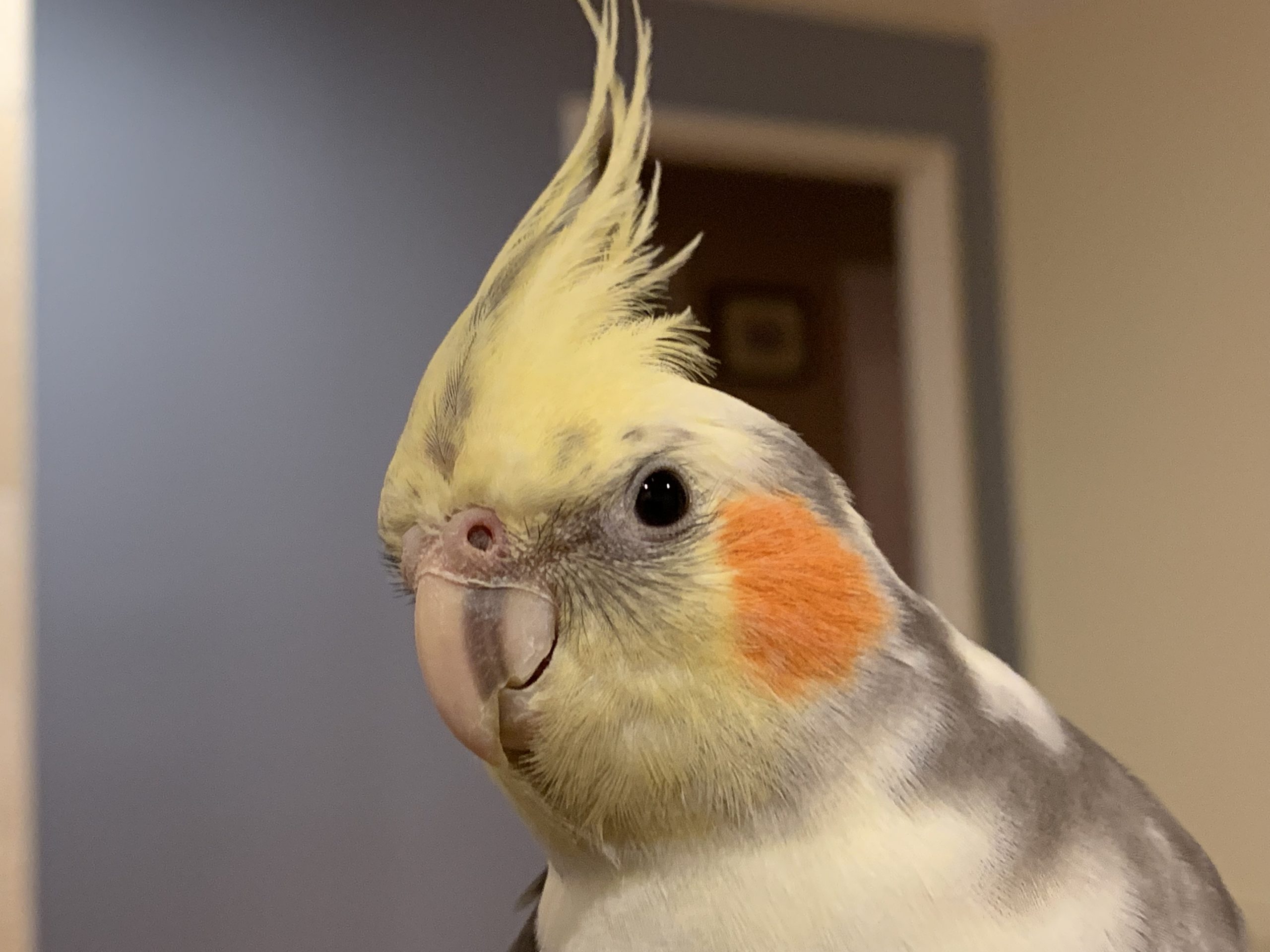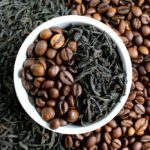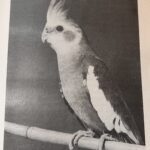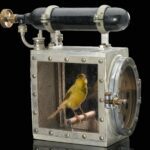
Do we know our parrots are happy?
I suspect most people would say their parrots are happy and cite some evidence:
- They sing or talk
- They play with toys or do tricks
- They willingly interact with us and let us scratch their heads
But sometimes we mistakenly think other human beings are happy when they really aren’t. So, can we really be sure our parrots are happy?
If you love reading scientific papers like me, there’s a fascinating paper in Current Biology called “Do Birds Have the Capacity for Fun?”
Like the article, let’s start with this viral video of a raven sledding down a roof in Russia.
It’s very hard as a human to watch this and not be 100% sure this raven is having fun and is therefore, very happy. But for the sake of argument, let’s make up some other explanations for what they are doing:
- Practising for a sport
- Building up strength and agility
- Doing something their friends dared them to do
- Working on overcoming a fear of heights
All of those sound more like human things than raven things. But aren’t we assuming they are having fun because that’s what a human having fun would look like? Anthropomorphism is a term that means we are attributing human characteristics to an animal. This can sometimes cloud our judgment of animal behavior.
Yet, even for birds, especially those known to be smart such as crows and parrots, it is very easy to slip into the anthropomorphic trap and attribute them with human emotions without good evidence. The question for this Primer is whether our quick attribution of pleasure and fun to the birds described for the two videos, or indeed any non-verbal creature, is just an example of our introspection biases or whether we can adopt a more scientific approach.
Do birds have the capacity for fun—Current Biology—5 Jan 2015
What is fun?
The author recounts some activities that could be perceived as fun and are scientifically testable, unlike the lone raven on the rooftop where we cannot prove anything.
Although animals do not necessarily have the time, cognition or neurobiology for pastimes or leisure activities, some behaviors could be seen as being related to having fun, such as experiencing sensory pleasure from eating a preferred food to having sex to experiencing something beautiful, such as art.
Omnivorous animals with a varied diet are the best candidates for experiencing pleasure from their food, as they must possess the capacity to discriminate between different foods, preferring one over another. These preferences do not necessarily reflect differences in nutritional value between the foods (like our own dietary preferences)
Do birds have the capacity for fun—Current Biology—5 Jan 2015
The brain
Since this is a science-based blog, now we get to the meat of whether a parrot might be having fun or might be experiencing happiness. It all starts with the brain.
Turns out that the avian brain is not that much different than the brain of a mammal when it comes to feelings of pleasure and this can be studied by looking at neurotransmitter behavior, especially dopamine.
With respect to our argument that birds have brains capable of experiencing pleasure (and so having fun), it is noteworthy that receptors for both dopamine and opiates are found in overlapping brain regions in those areas equivalent to hedonic brain regions in rodents and primates.
Do birds have the capacity for fun—Current Biology—5 Jan 2015
Do parrots play?
Armed with knowledge of the brain, now on to the central questions. Can parrots experience fun, pleasure, and happiness. The author does note that play appears to be unique to mostly parrots and crows.
Play thus seems to be relatively uncommon in birds, seen in only 1% of the approximately 10,000 species and largely restricted to species with an extended developmental period, such as crows and parrots […] examples included elaborate acrobatics, manipulating objects and different types of social play, including play fighting.
Do birds have the capacity for fun—Current Biology—5 Jan 2015
Do birds sing for fun?
This question is debated well in one of my favourite books.
But back to this paper I’ve been quoting.
Studies have suggested that dopamine provides the drive or motivation to sing (equivalent to the wanting system) and that opiates cause singing to be rewarding (equivalent to the liking system).
Do birds have the capacity for fun—Current Biology—5 Jan 2015
So we know about the brain chemistry of a singing bird but not whether that equates to happiness. The brain is complicated!
What do we really know for sure?
This paper presents much of what we know on the subject of whether birds play or can have fun, but not as much on how we can determine if they are happy. Sadly, there are currently no definitive conclusions. We can’t prove a parrots is happy just yet. But it’s exciting to think how far we’ve come.
Personally, I think it could revolutionize how we care not only for our parrots but for any captive animal if we can determine how happy they are with our care of them.
I can’t say it any better than this researcher.
What are the implications if we conclude that birds do not have fun? Our animal welfare laws are based largely around an attempt to provide animals with an absence of pain and suffering. We would also like them to be happy. Although a noble pursuit, as yet there is very little scientific evidence to bear on what a happy animal would look like if we saw one. It is therefore of primary importance that we develop sensible, scientifically-based methods to determine precisely what constitutes an animal feeling happy, sad, joyful and whether it can have fun. We can then use such information to enhance their lives, rather than attributing our own ideas on what they do and do not need based on introspection and anthropomorphism.
Do birds have the capacity for fun—Current Biology—5 Jan 2015





